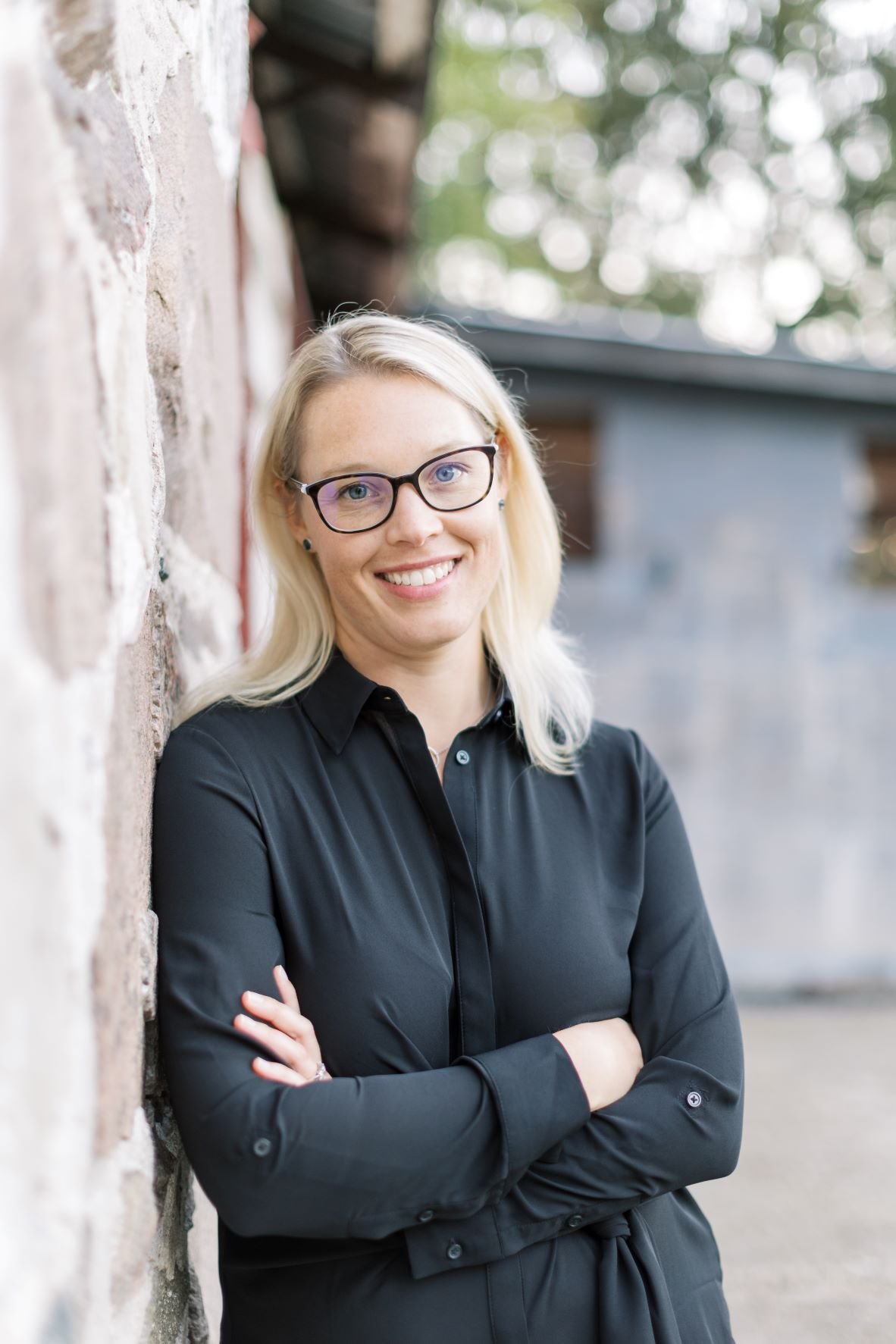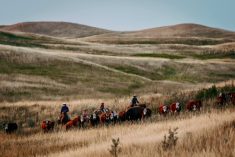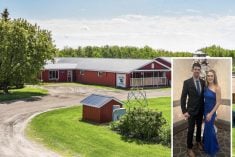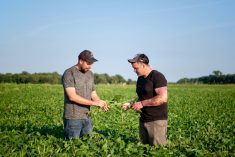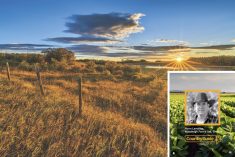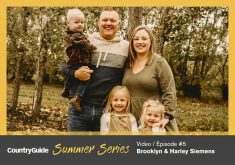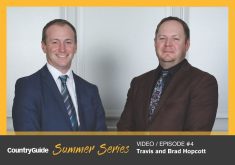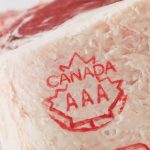Four generations of Doerksens have managed their mixed farm and ranch operation in Gem, Alta. Today, they are proudly raising the fifth generation while carving out a successful pasture-to-table business model and enhancing the sustainability of their land, herd and future.
Together with their parents, families and employees, the Doerksen brothers — Daniel, Lorin and Barry — run Gemstone Cattle Company and Gemstone Grass Fed Beef. Managing a large commercial cow herd and purebred Hereford and Red Angus herds, they finish all their animals through both a conventional feedlot and grass-fed program, and manage more than 3,000 irrigated acres of grazing and winter forages.
The family is focused on raising their cattle using regenerative farming practices aimed at improving the health of their land, cattle and the families they feed. They also market all their beef through a pasture-to-table-business model that includes an artisan butcher shop, online orders and a farm-to-table kitchen at the Calgary Farmers’ Market.
Read Also
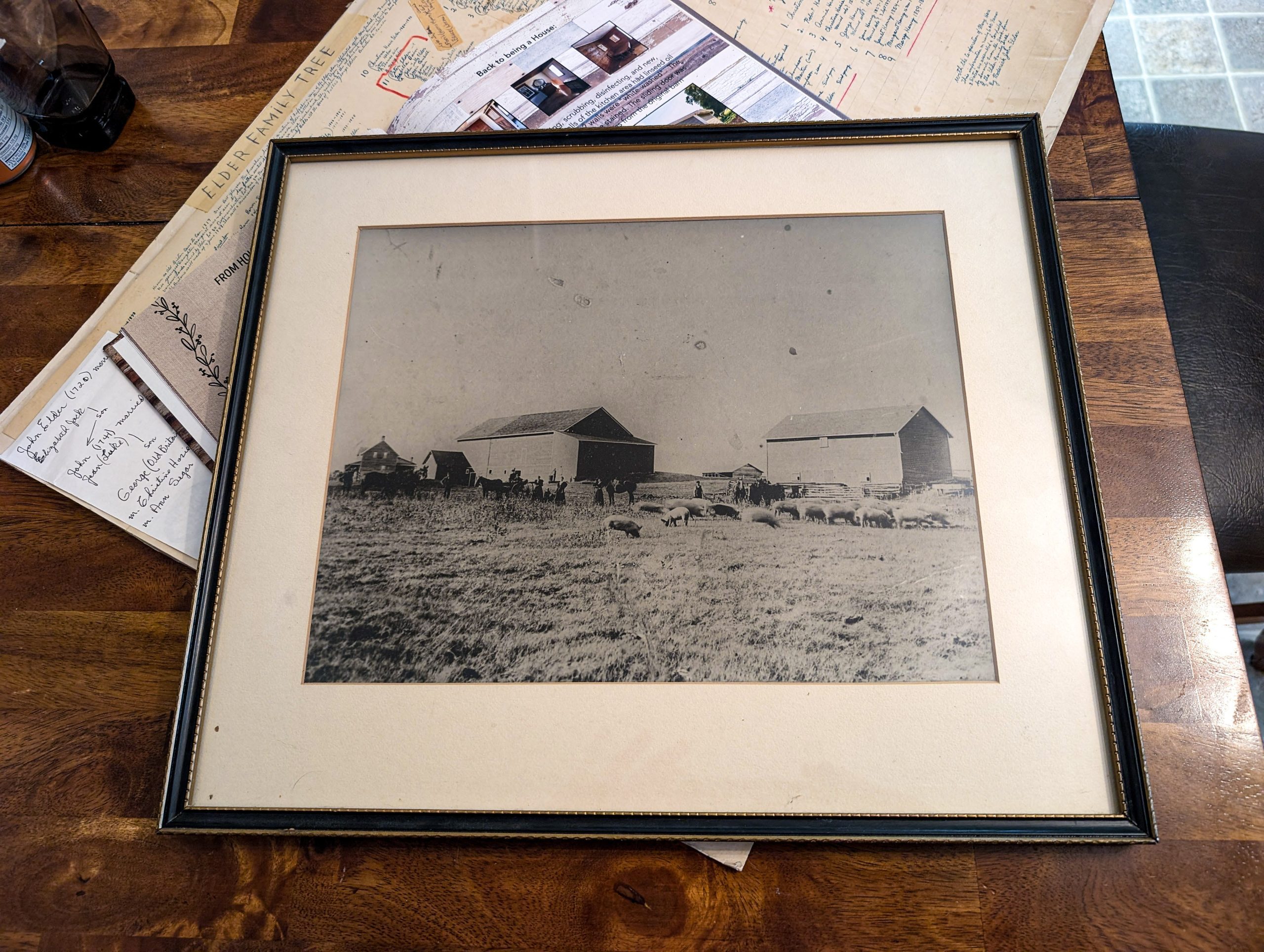
Why you should preserve your farm’s history
There was a big cast iron dinner bell in the middle of the farmyard where Maggie Van Camp grew up….
Winners of the 2024 Canada’s Outstanding Young Farmers (COYF) as well as the Alberta Outstanding Young Farmers’ award, the Doerksen brothers shared with Country Guide their experiences, motivations and forward-thinking outlooks on farming, regenerative agriculture and what it means to be a young farmer.
Country Guide: How long have you been farming, and what’s changed since you started?
Daniel: When I came home after school 22 years ago, we were a conventional cash crop farm that also raised feed for our cow herd and sold our calves. We were price takers in the traditional sense. As my brothers began to return home to the farm, we realized we needed to find new avenues of revenue to support our growing families.
Lorin: That’s why we started finishing some of our cattle on grass rather than the feedlot. In 2018 we made the shift to market our grass-fed beef through an online store, shipping throughout Alberta. In 2022 we opened the butcher shop and restaurant kitchen in the Calgary Farmers’ Market that embraces the “nose to tail” principle.
To us, (regenerative agriculture) means improving soil health and reducing our inputs. I brought this concept back to the farm and that’s one of the things that’s led us to finish most of our cattle on the land and deliver wholesome, grass-fed beef. Genetics also plays a huge role in what we do and how the animals finish. We even serve a new beef genetics market selling forage-developed bulls and bred heifers that can be productive on a strictly forage diet.

Barry: I’ve been back on the farm since 2022 and I’m proud to say we now have a direct line to consumers and end-users of our beef. And we have control over every step — from the day the calves are born through to the steaks at the meat counter.
What’s changed the most is the demand for grass-finished beef and consumer interest in how the animals are raised and where their food comes from. Today, we’re raising beef for flavour, nutrient density and quality.
We’ve grown our business around solving problems, like how to make our beef more accessible, realize more value and be more sustainable. I don’t believe this opportunity existed 20 years ago.
CG: Tell us about your Outstanding Young Farmers’ experience.
Lorin: It’s been an amazing opportunity to meet fellow like-minded farmers, connect and learn from each other.
Daniel: It’s been a great experience for all of us and we appreciate being recognized.
CG: In your opinion, what makes a good leader?
Lorin: A good leader motivates people to get involved and move in the same direction. We’ve learned to focus our leadership by following a vision for our farm and family. We talk about our vision; we identify skill sets that are needed to achieve it and we work with people who share our values.
Barry: I think a good leader surrounds themselves with people who are smarter to fill in the gaps where they’re not strong. And having a vision that people can get behind and contribute their complimentary skills makes a good leadership team.

CG: How do you think your approach to farming is different from previous generations?
Barry: The biggest difference is that we’re not raising cattle anymore, we’re raising beef. We have opportunities now that didn’t exist in the past, we can sell directly to consumers who are more knowledgeable about what they are eating and have more access to information.
Lorin: Our approach is integrated into everything we do. We’re creating a healthy, quality product while raising our beef in a low-stress environment and applying the principles of regenerative agriculture. And we’re doing all this while we share our story with our customers. I’ve learned that consumers really just want to know that our interests are aligned with theirs, like we’re all doing our best by feeding our kids healthy, nutritious beef.
CG: What does farming look like today compared to when you started out?
Daniel: I think we’re fortunate we got into farming when we did. It’s a tough industry to get into these days. We all entered at different times, and while we always thought about working together, we realized we had to create opportunities to farm and ranch together. We also wouldn’t be where we are today by ourselves. There’s tremendous value in working together.
Lorin: We’ve learned a lot along the way, especially the entrepreneurial side of our direct marketing business. The greatest thing about farming is that we have a diverse and unlimited set of resources. It’s almost like “the sky’s the limit” on what we can do on our land, and we are choosing to make a living for our families while feeding people and caring for the land itself.
CG: Where do you see the agricultural industry going in the future?
Daniel: As the cost of producing food goes up, we need to find new ways to do more with less. That could mean doing things differently, like polycropping, regenerative methods or finding more direct ways to market our products.
Lorin: We are fortunate and blessed to be born into this amazing lifestyle and there’s no better time to be in agriculture. We are still a “frontier” industry and there are so many opportunities that make farming and ranching an exciting place to be. Programs like COYF are a great example of exciting opportunities, and we are grateful for the experience and the people we’ve met.

